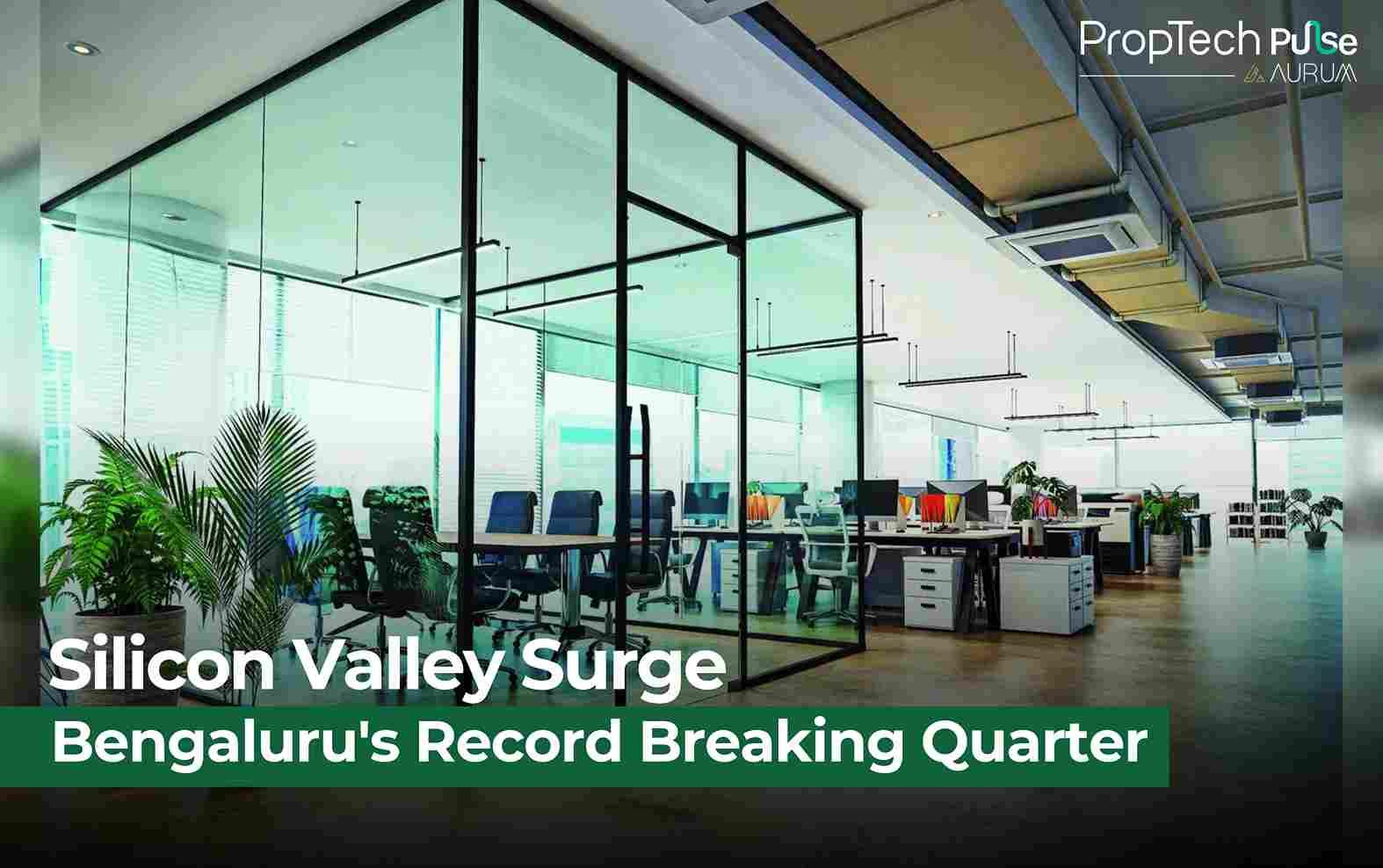
In the Silicon Valley of India, where startups dream and global corporations expand, the first quarter of 2025 has written a remarkable chapter in commercial real estate history. Bengaluru's office market has achieved something extraordinary—a record-breaking net absorption of 3.2 million square feet, marking the highest opening quarter performance since the pandemic reshaped the world of work.
The Numbers That Tell a Story
Behind these impressive figures lies a narrative of resilience, growth, and unwavering confidence in India's technology capital. The total leasing activity reached 4.3 million square feet, representing a robust 37% year-on-year growth that speaks to the city's magnetic appeal for businesses across sectors.
What makes this achievement particularly noteworthy is the diversity driving this growth. While technology has long been Bengaluru's calling card, the first quarter of 2025 revealed a fascinating shift in the city's commercial landscape. Manufacturing and engineering sectors claimed the pole position with 32.5% of total activity, signaling a new chapter in the city's economic evolution.
"Bengaluru's office market registered a total leasing activity of 4.3 million sq ft, a 37% y-o-y growth. Manufacturing/engineering took the pole position with 32.5%, indicating its growing importance in the city's office landscape," notes the JLL report, capturing the essence of this transformation.
Supply Meets Demand in Perfect Harmony
The beauty of Bengaluru's Q1 performance lies not just in absorption numbers but in the delicate balance between supply and demand. The city experienced healthy space additions, with developers responding confidently to persistent demand from occupiers across technology, manufacturing, and flexible workspace sectors.
This steady supply pipeline reflects something deeper—developer optimism about Bengaluru's continued economic trajectory. When real estate developers invest in new inventory, they're essentially betting on the future, and their confidence in Bengaluru's prospects has never been stronger.
By the close of Q1 2025, the city's office vacancy rate had fallen to 11.4%, marking a 50 basis points reduction quarter-on-quarter. This steady decrease tells the story of a market in equilibrium, where available spaces are being absorbed at a pace that maintains healthy competition while avoiding oversupply.
The Rent Revolution
Perhaps one of the most telling indicators of Bengaluru's office market strength is the steady upward trajectory in rental rates. Despite healthy supply inflow, rents continue their ascent—a phenomenon that speaks to the robust demand for quality office space in prime locations.
This willingness among occupiers to pay higher rents reveals a fundamental shift in priorities. Companies are no longer just seeking space; they're seeking experiences, locations, and environments that can attract and retain top talent in an increasingly competitive market.
The steady growth of capital values further strengthens Bengaluru's appeal as a key destination for investors. With core asset availability and growth potential serving as key drivers, investment activity continues to flourish in the city's commercial real estate sector.
A Diversified Future
While technology will likely remain the backbone of Bengaluru's office demand, the first quarter of 2025 has illuminated an exciting trend toward diversification. Manufacturing, fintech, and co-working sectors are expanding their presence, creating a more resilient and varied commercial ecosystem.
The growth of Global Capability Centers (GCCs) and research and development facilities of multinational corporations adds another layer to this diversification story. These facilities represent long-term commitments to the city, bringing with them stable demand and sophisticated space requirements.
According to NASSCOM's latest insights, this trend toward establishing GCCs in Bengaluru reflects the city's evolution from a service delivery hub to a center of innovation and strategic operations.
The Technology Advantage
Bengaluru's position as India's leading technology hub continues to underpin its office sector growth. The city's ecosystem—comprising established IT giants, emerging startups, research institutions, and a skilled workforce—creates a virtuous cycle that attracts businesses across the technology spectrum.
From artificial intelligence and machine learning companies to traditional software services firms, the technology sector's diverse needs continue to drive demand for various types of office spaces—from collaborative environments for startups to sophisticated corporate campuses for multinational corporations.
Investment Outlook: A Market in Motion
The commercial real estate investment landscape in Bengaluru reflects the broader confidence in the city's office market. Investors are drawn not just by current performance but by the trajectory of growth and the quality of demand.
The market's ability to absorb new inventory while maintaining upward pressure on rents indicates a positive outlook for commercial investments. This dynamic suggests that Bengaluru's office market has achieved that rare balance where supply and demand create sustainable growth rather than speculative bubbles.
Looking Ahead: Sustainable Growth
As Bengaluru moves through 2025, the foundations laid in the first quarter suggest a year of continued strength. The combination of strong demand, decreasing vacancy rates, and steady rent increases points to a market that has found its rhythm.
The diversification beyond technology, while maintaining the sector's dominance, creates a more resilient commercial real estate ecosystem. This balance positions Bengaluru not just as a technology hub but as a comprehensive business destination capable of supporting various industries and their evolving space needs.
As new developments rise across the city's various micro-markets and existing spaces find new occupiers, Bengaluru's office market stands as a testament to India's economic dynamism and the enduring appeal of cities that can adapt, evolve, and excel in an ever-changing global economy.
Unlock the Latest in Real Estate
News, Infographics, Blogs & More! Delivered to your inbox.
“Data that drives action. Insight that inspires action. Technology that empowers action.“
“Data that drives action.
Insight that inspires action.
Technology that empowers action.“









